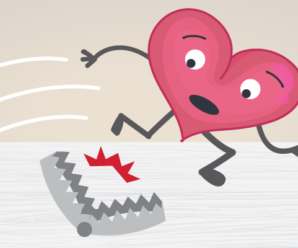Problem gamblers can feel hopeless and suicidal. Research from different countries shows about 20% of gambling addicts attempt suicide.

Understanding problem gambling
Problem gambling, also referred to as “gambling addiction” or “gambling disorder” is gambling behavior that is damaging to a person or their family, often disrupting their daily life and career, according to the National Council on Problem Gambling.
Anyone who gambles can be at-risk for developing a gambling problem. Some warning signs include:
- Thinking about gambling all the time.
- Feeling the need to bet more money and more often.
- Going back to try to win your money back.
- Feeling restless or irritable when trying to stop or cut down.
- Feeling like you can’t control yourself.
- Gambling despite negative consequences.
- In extreme cases, problem gambling can cause bankruptcy, legal problems, losing your job or your family, and thinking about suicide.
“A pathological gambler is preoccupied with gambling and thinks about it all day,” said Dan Buss, LCSW, a licensed clinical social worker at Marshfield Clinic. “Everything revolves around it.”
According to the American Psychiatric Association, any gambling behavior that creates harm, distress and negative life problems could signify a gambling disorder. For example, two simple questions to ask are:
- “Have you ever had to lie to people important to you about how much you gambled?”
- “Have you ever felt the need to bet more and more money?”
A yes answer to either question suggests that there may be a gambling problem.
Financial and emotional impact
The average client Buss sees for compulsive gambling has a debt of about $32,000. Some have “maxed-out” many credit cards while others have dipped into retirement plans and stock holdings. Beyond the enormous financial costs are the many families destroyed.
The amount of money lost or won does not determine when gambling becomes problematic. While gambling can cause financial problems, it becomes a problem when it interferes with your relationships, job, mental or physical health or any other area of life.
“These compulsive gamblers can’t control the impulse to gamble, even when they know it is hurting themselves or their loved ones,” Buss said. “They keep going whether they’re up or down, broke or flush, happy or depressed. Even when they know the odds are against them and they can’t afford to lose, people with a gambling addiction can’t stay off the bet.”
Hidden illness
Gambling addiction is sometimes referred to as a “hidden illness” because there are no obvious physical signs or symptoms like there may be with drug or alcohol addiction.
Problem gamblers typically deny or minimize the problem and go to great lengths to hide it. They often withdraw from their loved ones, sneak around and lie about where they’ve been.
Although no substance is ingested, someone with a gambling problem gets the same effect from gambling as one might get from taking a drug or drinking alcohol. According to the 2022 research study, the main motivation for individuals to seek help is “hitting a rock bottom,” with suicidal thoughts being the low point. It’s important to talk to someone before you reach this point.
Resources and help for problem gambling
If you enjoy gambling, you can set some basic rules to avoid it becoming a problem. The Lower Risk Gambling Guidelines suggest following these three recommendations:
- Gamble no more than 2% of your take-home pay
- Gamble no more than once a week
- Take part in no more than two different types of gambling
However, if you are questioning your gambling or feeling shame around it, that could be your first sign to seek help.
In Wisconsin, the Wisconsin Council on Problem Gambling has created a statewide database of qualified Treatment Providers, Gamblers Anonymous and Gam-Anon chapters for resources. Read these Gamblers Anonymous 20 Questions and if you answer yes to seven or more, you should call 1-800-GAMBLE-5 or text 1-850-888-HOPE (4673) or chat www.wi-problemgamblers.org.
You also can schedule an appointment to talk with counselors like Buss. Services and resources are also available from the National Council on Problem Gambling.
Because shame and guilt are associated with gambling, it can be difficult for someone to come forward.
Individualized treatment plan
Buss said that counseling and a 12-step support group program is preferred for treatment, if available. “Gamblers Anonymous can be scarce in certain locations but will be helpful,” he said. “Treatment plans have a similar approach but will be different per patient needs as everyone is unique and has different histories and lifestyles.”
If you notice you’re thinking about gambling more and more, or that it’s causing problems in any part of your life, seeking help early is key. Talk to your primary care provider or reach out to a resource above.
Talk to your primary care provider if you think you have a gambling problem.
Schedule an appointment Message your provider
Related Shine365 articles
Have a drinking problem? Alcoholism and binge drinking
How to quit smoking, vaping or chewing in Wisconsin
Opioid addiction: 12 signs to look for






Leave a Reply